No two people feel the exact same way about any film. Thus, Team Experience is pairing up to debate the merits of this year’s Oscar movies. Here's Ben Miller and Eric Blume on The Color Purple…
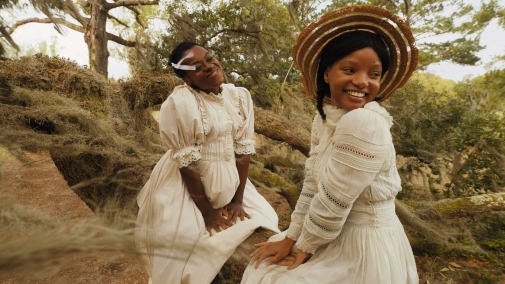
BEN: When it comes to Blitz Bazuwale's The Color Purple, I am supremely positive on the film. It's nice to have a film filled with unbridled energy and verve. I don't necessarily see it as a big loser when it comes to Oscar, but I think it deserves much more than it got.
What are your generalized thoughts on the film's quality?
ERIC: Ah Ben we're going to have a good time with this one! I watched The Color Purple with my jaw dropped, finding it almost unfathomable how terrible it was. Like, I couldn't quite believe it...
Every decision Bazuwale makes is wrongheaded; he paces the film GLACIALLY (I felt like it was at least six hours long); and he directs talented performers into one-dimensional, cliched, limited, and derivative performances that are often painful to endure...
Where to start? Element by element? Maybe we start with Bazuwale's musical conception of this film, or probably rather his lack of a musical conception.
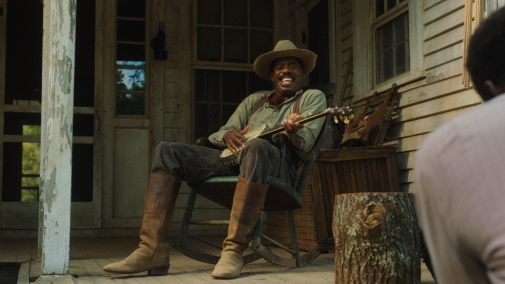
The film is not conceived as a musical... it seems simultaneously embarrassed to be a musical (most of the Broadway show's score is axed) while taking liberty to take flight and execute moments musically in whichever mood or style or visual style he might be feeling at any given moment. There are moments of minute "choreography" that happen within scenes, where dancing extras perform some kind of movement, but it's there intermittently and not with any thought-out purpose. The actual musical numbers are not conceived in the way great directors of movie musicals conceive numbers: he does not move people and images through time and space to music.
I'd like to write more about how he does tackle the musical numbers, but there is no consistent style or approach to them...no wholistic thinking or overarching artistic vision to show us why these characters sing, how the music transports these characters, or why this narrative is established within a musical world. The only number which actually works as a number is "Miss Celie's Blues" the composition from Spielberg's 1985 film version, because he executes it straightforwardly, in a "realistic" setting, and Taraji P. Henson keeps it simple. But even by that point in the narrative, we don't need to hear that song for dramatic purposes...it's pastiche, and it just makes the film longer. I'll hold off on the (very bad) acting and other elements for a moment...come at me!
BEN: Here's where you and I will majorly differ. I have never seen the Broadway show and have no reverence for it. Therefore, all the songs are fresh to me.
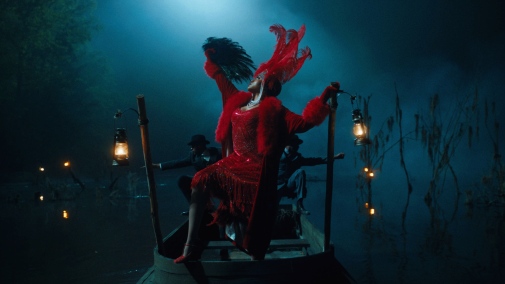
It was one of the few times in my life where my critical hat took a backseat to the normal everyday Johnny Filmgoer. I guess I just didn't care about the lack of musical flow between numbers or that conception. It just worked for me as a pure piece of entertainment. Was my viewpoint skewed by the loud row of talkative Black women in the row behind me? Probably. But their enthusiasm just enhanced my watch.
That being said, I can't help but agree that there is no overarching theme besides "musical" as the film goes along. The only time I actually said to myself, "Boy, this number just doesn't work" is "What About Love?" That one really comes out of nowhere, doesn't catch, and is instantly forgettable. But that was the only time I felt that way.
Instead of letting you continue on the path of bad, look at the glass from a fuller perspective. There has to be something you did find redeeming, didn't you?
ERIC: I did see the Broadway show, but believe me, I have no reverence for it. I don't think the score is very good in general, the songs were as forgettable onstage as they are onscreen. But I find this weird (and sad): if you're going to the time, money, and effort to make a movie version of a musical, why abandon most of the music (which is the only thing that made the theater piece different from the film)...and then just have basically another film version of The Color Purple, hitting all the same beats (in the same way) as Spielberg's 1985 version?

The Broadway musical, though deeply flawed, was at least a "new" telling of Alice Walker's novel. Not only does Bazuwale not have an affinity for conceiving or executing musical numbers on film, he doesn't bring anything new to the non-musical material, either. There is no new conception for telling this tale. It's largely a scene-by-scene retelling of the 1985 film, but with each scene just being longer, and played even more sentimentally!
Fantasia Barrino, Colman Domingo, Danielle Brooks, and Taraji P. Henson are all talented artists. But Bazuwale directs them into obvious, lazy performances. At best, all four actors do one-emotion-at-a-time acting. When the character is angry, they're angry. When they're sad, they're sad. But there is no complexity of emotion, no subtlety or ambiguity. The actors do a lot of indicating, and a lot of shameless mugging. It's the kind of acting that people who don't like musical theater THINK musical theater actors do all the time, when in fact, if you know musical theater well, that is not the case at all.
While the stars in the Spielberg film have moments where the acting is broad, they also all have lovely moments of depth and humanity. They felt like actual human beings, whereas in this film, everyone is a "movie character" just hitting easy-to-digest beats. Everything feels watered down so "church folk" can watch it and not be challenged or offended. After the brutal criticism that Spielberg got for taming down the lesbian angle of the script, you think this version made almost forty years later wouldn't be equally coy about that angle of the story?
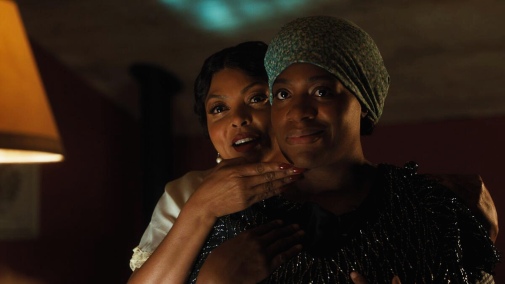
Ben, please trust that I take zero pleasure in relaying my experience watching this film. I was really hoping it would work. This film is such a misguided mess, it's not a question of glass half full...it's that the glass was replaced by a funnel. Since I truly don't find anything redeeming about this film (even the sets and costumes are imagined exactly the same to the 1985 version), why don't you give me better insight into things you did indeed love and admire about the movie? I'm all ears!
BEN: I guess I got caught up in the audience reaction. The more you talk about it, the more I agree with you, though I still like the film. One thing I absolutely can't deny: Bazawule feels like a first-time director. There are some choices made, but most of those choices are lifted straight from Spielberg. As far as casting, I thought it was very obvious casting for the roles outside of the main foursome. Aunjunae Ellis-Taylor and Deon Cole, for example, are very obvious casting choices. It felt like Bazawule was given carte blanche to make his film, and the checks and balances from a studio didn't exist as long as they believed it would make money (which it did, to a point).
It's a funny film to look at from a perspective of success. What was this film trying to be? Was Bazawule trying to go for awards prestige or was he attempting to make a commercial film musical. Either way it didn't work out for him. The film supposedly lost $40 million for the studio and was caught up in the bad press from Henson's pay comments. I still stand by the film as a piece of Entertainment, though I don't feel it's in the top tier of the film year.
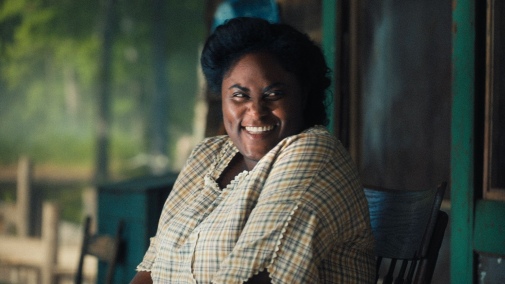
I'm finding it difficult to defend myself because everything you are saying is valid. I am warmer on Oscar-nominated Brooks than you are, but I think it has a lot to do with how fun she makes the character. I made the joke on Twitter that her character essentially comes in to kick ass out of nowhere. If you remove Brooks and her energy from the film, it gets way too depressing for a brightly-lit musical.
Here's a question for you. Where did the reported $90-$100 million dollar budget go for this film? Henson and Brooks talked about not having trailers, transportation, or food on-set. Where did this money go?
ERIC: Yo bro, I definitely don't wanna yuck your yum. There are plenty of technically bad movies that I have affection for -- I think Spielberg's The Color Purple is probably one of them! I think that was one of the biggest disappointments for me with this film. I felt no joy watching it, as I didn't see joy from the creative team. It just felt dutiful and uninspired. I think Danielle Brooks is a wonderfully talented actor, but I think she is full-blown *bad* in this movie. She has two modes: loud/sassy and sad/sentimental. And she overdoes both, making Sofia a caricature rather than an actual human being. It's a performance with both eyes on the audience at all times, each moment trying to trigger a response to love her. Again, that's Bazawule's fault, as he directs all the actors that way, but it's just a bummer to witness.
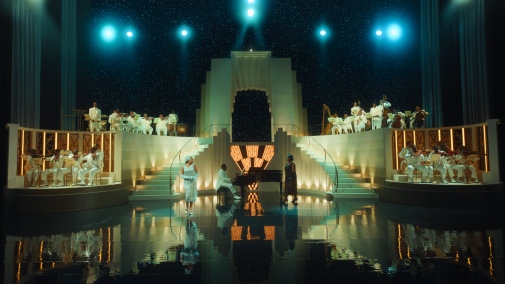
I love your question about where did this money go. It's a good one, and one I wish I could answer! They did build a lot of sets and have a large number of extras? In addition to usual costs, the musical element demands choreographers, dance captains, dancers, rehearsal space, rehearsal time, music clearance rights, studio recording time, extra syncing/dubbing time, etc. Those costs add up, obviously, which is all the sadder when you see the results, which feel almost extraneous at certain moments. Like, why does Harpo get a number about building his house...who the fuck cares?
I think your warm reception to the film also lends to in-theater experiences vs. out-of-theater experiences. You saw it with an obviously engaged audience, whereas I saw it at home where it seemed torturously slow and ponderous and unmoving. Biazawule has engineered this film for eager response, and in a room where people are responding to its beats, it makes sense that you were swept along. And that's great! Honestly. There's nothing worse than some asshole like me who tries to rob you of your experience. But the whole point of Split Decision is to have a frank and hopefully critical conversation with two people who responded very differently to watching the same film. This is the whole point of cinephiles getting together to hash out their thoughts respectfully.
It made me very sad to watch this film, to be honest. I loved the easy lyricism of Alice Walker's book and the enveloping sweep of Spielberg's version. The lack of artistry and inspiration in this new version was depressing to me. But let me leave the last word for you, my friend...
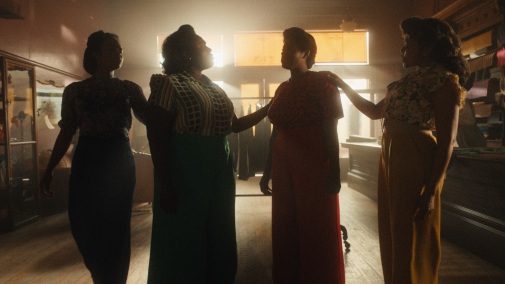
BEN: I agree with you as far as lack of love for Spielberg's version. I also didn't get as wrapped up in it as others did. But, I digress.
This is a great example of a film to watch with a big crowd. That enthusiasm was so great, I left my critical hat at home. I was too wrapped up in the euphoria of it all to notice the faults. I recognize it's not a perfect film, but if it was on TV right now, I would still sit down and watch it. And I'm sure Bizuwale is a fine gentleman who should have another opportunity to direct a film, this was just a big ask for his first theatrical feature.
I stand by my opinion of the film, and I also greatly respect your opinion of your downright DISDAIN for it. I'm glad we can have a frank discussion about it without name-calling and hair-pulling.
Always a pleasure, sir!
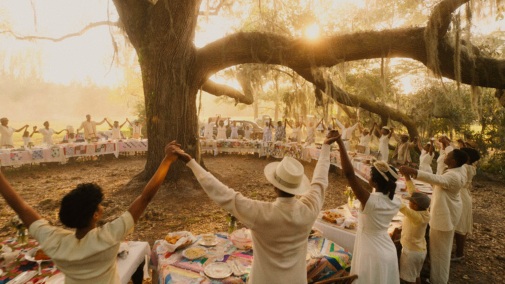
Previous Split Decisions: